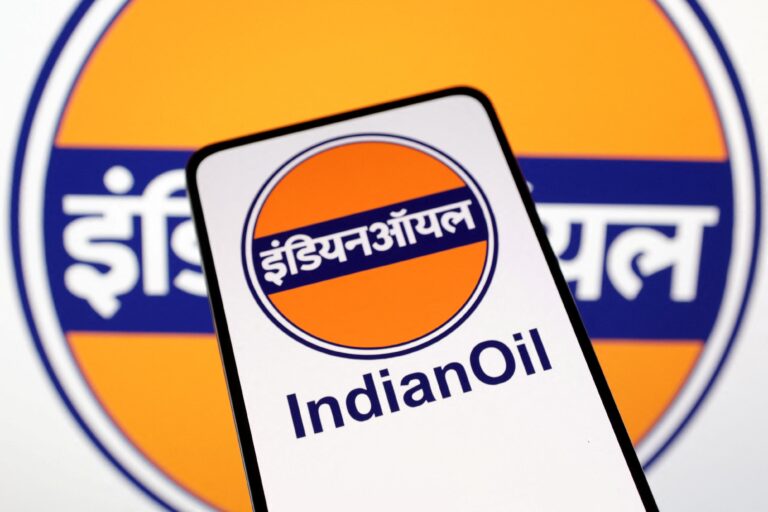Indian Oil Corporation (IOC) and Bharat Petroleum Corporation Limited (BPCL) have reportedly resumed purchases of Russian crude oil for September shipments, according to sources cited by Reuters. This move marks a notable shift as Indian state refiners continue to navigate the complex dynamics of global energy supplies amid ongoing geopolitical tensions and Western sanctions on Russia. The development underscores India’s growing role as a key buyer of Russian oil, balancing energy security with international diplomatic pressures.
Indian Oil and BPCL Restart Russian Oil Imports for September Supply
Indian Oil Corporation (IOC) and Bharat Petroleum Corporation Limited (BPCL) have recommenced importing Russian crude oil supplies for the month of September, according to industry sources. This move signals a strategic shift in procurement as global energy markets remain volatile amidst ongoing geopolitical tensions. The renewed transactions come after a brief hiatus, reflecting India’s intent to diversify its crude sourcing while managing cost efficiencies amid rising international oil prices.
Analysts highlight several key factors behind this decision:
- Competitive pricing: Russian crude continues to offer attractive discounts compared to Middle Eastern alternatives.
- Supply security: Ensuring steady oil imports to meet India’s growing energy demand remains a top priority.
- Geopolitical balancing: Navigating complex global sanctions and trade restrictions requires careful procurement planning.
| Company | Crude Volume (KT) | Expected Arrival |
|---|---|---|
| Indian Oil Corporation | 350 | Mid-September |
| Bharat Petroleum | 280 | Late September |
Implications of Renewed Russian Oil Purchases on India’s Energy Security
The recommencement of Russian oil imports by major Indian refiners like Indian Oil and Bharat Petroleum Corporation Limited (BPCL) marks a strategic pivot amid rising global energy uncertainties. This move is expected to bolster India’s
energy security by ensuring a steady supply of crude at competitive prices, particularly as international oil markets face volatility due to geopolitical tensions and supply constraints. By diversifying sources with increased Russian crude purchases, India aims to mitigate risks associated with overdependence on Middle Eastern suppliers.
Furthermore, the decision carries potential benefits beyond immediate supply. It may lead to cost savings that could ease inflationary pressures domestically and support economic growth. However, it also poses challenges, including navigating sanctions regimes and maintaining diplomatic balances. The following table summarizes key implications of this renewed engagement:
| Aspect | Impact on Energy Security |
|---|---|
| Supply Stability | Enhanced resilience through diversified crude sources |
| Pricing | Access to discounted grades amidst market tightness |
| Geopolitical Risk | Need to balance international relations carefully |
| Domestic Market | Potential relief in fuel inflation benefiting consumers |
- Strategic Recommendations for Navigating Geopolitical Risks in Crude Oil Sourcing
Amid fluctuating global oil markets and persistent geopolitical tensions, Indian oil firms are compelled to adapt their sourcing strategies to secure stable supplies. A multi-faceted approach that includes diversification of supply sources, investment in strategic reserves, and closer engagement with alternative oil-producing regions can mitigate risks associated with reliance on any single supplier. Leveraging flexible contracts and fostering bilateral energy partnerships enables buyers like Indian Oil and BPCL to navigate sanctions and regulatory changes without disrupting the supply chain.
Furthermore, enhancing real-time geopolitical risk assessment through advanced analytics tools offers critical foresight into potential disruptions. Incorporating these insights into procurement decisions allows state-owned enterprises to balance cost-efficiency with supply security. The table below outlines key strategic actions along with their risk mitigation benefits for energy companies operating under uncertain geopolitical climates.
| Strategic Action | Primary Benefit | Implementation Focus |
|---|---|---|
| Diversify Supplier Base | Reduces dependency risk | Explore non-traditional markets |
| Increase Strategic Reserves | Buffers supply shocks | Enhance storage capacity |
| Flexible Contract Terms | Enables rapid supply adjustments | Include force majeure clauses |
| Advanced Risk Analytics | Improves proactive decision-making | Implement real-time monitoring tools |
| Bilateral Energy Partnerships | Secures political leverage | Strengthen diplomatic ties |
In Retrospect
As Indian Oil and BPCL resume purchasing Russian oil for September, the move highlights the ongoing complexities in global energy markets amid geopolitical tensions and shifting supply chains. Industry observers will be closely monitoring how this development influences regional fuel dynamics and India’s broader energy strategy in the months ahead.




